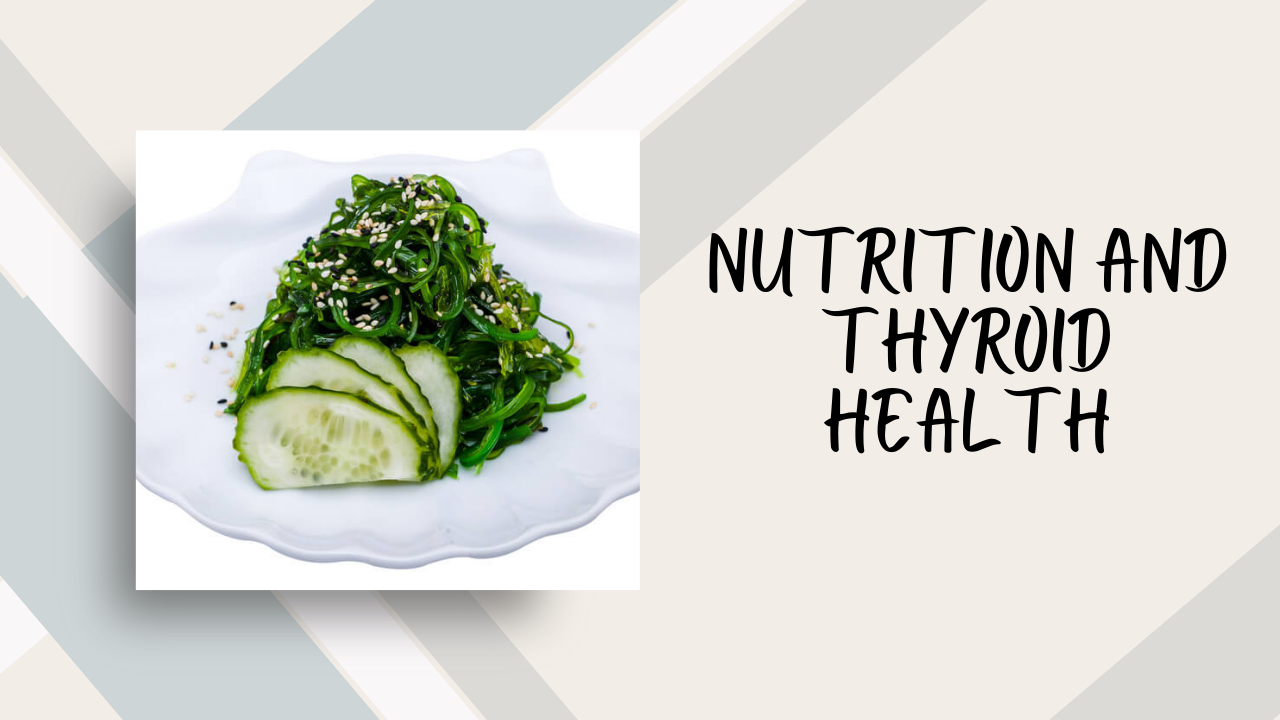Nutrition and Thyroid Health
Sep 30, 2015
The thyroid gland is responsible for many cellular functions, but one of its main jobs is regulating metabolism. Many people have low thyroid function, which manifests as fatigue, feeling cold, difficulty losing weight, thinning hair, dry skin and hair, depression, and poor sleep quality.
Do these things sound familiar to you?
The pituitary gland produces thyroid-stimulating hormone (TSH), which goes to the thyroid and tells the thyroid to produce T4, the most abundant thyroid hormone, and smaller amounts of T3. T4 goes out to the body where it is converted to T3, the most active thyroid hormone. Many people do not convert T4 to T3 efficiently, so their actual, available, active thyroid hormone – T3 – may be low.
Blood tests are often misrepresentative of thyroid health. Many people have “subclinical hypothyroidism” – their test results may be in the “normal” range but they still have symptoms of low thyroid function. I look at optimal ranges of thyroid, and if a person is low-normal on lab work and exhibiting thyroid symptoms, I will consider supporting their thyroid.
There are certain nutritional factors that can support thyroid function. The first and possibly most important is iodine. T3 is triiodothyronine, T4 is thyroxine; T3 has 3 molecules of iodine and T4 has 4 molecules in its structure. Therefore a diet deficient in iodine can inhibit thyroid hormone production. Iodine used to be abundant in the soil, however as soil quality dropped, more people became iodine deficient. Iodine was then added to table salt to remedy this problem. But another problem occurred – we all learned how bad table salt was because of hypertension and heart disease, and so we stopped adding salt to our food! Sea salt contains some naturally occurring iodine but not in the quantities of fortified table salt (but is a much better choice none-the-less because of the range of naturally occurring minerals). We can get iodine in our diets by eating the following foods –
- Asparagus
- Dulse
- Garlic
- Kelp
- Lima beans
- Mushrooms
- Seafood
- Sea salt
- Seaweed
- Sesame seeds
- Spinach
- Summer squash
- Swiss chard
- Turnip greens
T3 and T4 are also dependent on tyrosine, which is an amino acid. Again, protein malnutrition will hinder this foundational building block. Keeping high quality proteins in the diet will supply the amino acid needs for this and other hormones.
Just as there are foods that support thyroid function, there are also foods that can block it. The biggest players here are cabbage, broccoli, rutabaga, cauliflower, kale, Brussels sprouts, watercress, and peanuts. Cooking partially inactivates the interfering chemical, known medically as a goitrogen. Thus, in most cases it is wise to eat these foods cooked. Raw peanuts or soybeans should be limited. Peanut butter is heated to a high enough degree that the goitrogens are destroyed. Soy in general is a goitrogen and may block healthy thyroid production, therefore I recommend most people limit their soy intake, especially those with thyroid problems.
These foods may actually be eaten by people with high thyroid function who need to suppress it. My caution here is to watch levels closely – most hyperthyroidism I have come across has been caused by the first phase of Hashimoto’s thyroiditis – an autoimmune condition that tends to spike thyroid levels high at first then suppress thyroid function resulting in a longer term hypothyroidism.
More and more research is coming out demonstrating a link between gluten intolerance and thyroid issues. Both can be auto-immune, and testing anti-TPO and anti-thyroglobulin levels along with TSH, free T3 and free T4 can help to determine whether a thyroid problem is autoimmune in nature. If one has undiagnosed gluten intolerance or celiac disease, there may be a process at work that is triggering auto-antibodies to the thyroid gland. In other words, your immune system might be attacking your thyroid gland as if it was a baddy not a goody.
For this reason, removing gluten from the diet can help hypothyroidism by calming down that autoimmune response.
My biggest caution in doing anything to support the thyroid is to make sure the adrenals are well supported also. If one boosts the thyroid and the adrenals are depleted, that depletion will only get worse. I liken it to a car – it’s like putting your foot on the accelerator with the parking brake still on – it will rev you up but will just wear out the engine. Not good.
I’ll write later this week about some other supplements that can help support thyroid health, and about thyroid hormone medications too. But as with everything, starting with the diet is the way to go.

